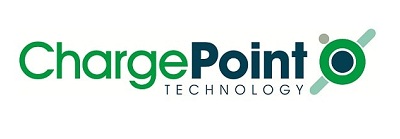As an industry, we are continuing to adjust to the global challenges faced during the COVID-19 pandemic and it is widely acknowledged that this will be felt in the pharmaceutical industry for some time to come.
Supply issues lead India to invest in local manufacturing
It has been reported that the closure of many factories in China following the COVID-19 outbreak, created the need for huge adjustments in the pharmaceutical industry. These factories make the basic raw materials and active pharmaceutical ingredients (APIs)crucial to the continuous delivery of vital medicines to patients. During such uncertain and demanding times, these closures have had a knock-on effect for global supply.
For example, India depends on China for around 70% of the APIs that it uses in pharmaceutical manufacturing. China’s coronavirus pandemic could have potentially turned the tables on India’s $39 billion drug production industry and India’s Department of Commerce and Pharmaceuticals convened several meetings with stakeholders to bolster domestic API manufacturing. In response, the Indian government has set aside $1.2 billion for the pharmaceutical industry and announced the creation of a production-linked incentive scheme for the manufacturing of critical drugs and APIs to shift the country’s reliance on the supply of APIs from China1.
The Indian pharmaceutical market is experiencing huge growth and is expected to increase from nearly $34.3 billion in 2020 to more than $45 billion by 20252. The country is currently undergoing the production of 53 APIs as part of its “China-plus-one” policy to fill in supply gaps3. These measures are essentially aimed at ensuring and maintaining the availability of medicines, since India is a major supplier of generic medicines globally. Currently, India is to remain one of the fastest growing economies in the world1.
Increased demand for containment and sterile product transfer in manufacturing
Alongside this, as pharmaceutical companies continue to rush to develop new medicines, including a vaccine against COVID-19, manufacturers are looking at an increased need for sterile manufacturing capabilities. They are also handling more highly potent active pharmaceutical ingredients (HPAPIs), an industry trend that has been bolstered by current circumstances. In line with this, the global HPAPIs market is expected to reach USD 34.8 billion by 2025 with an increase in fast relief therapeutics in emerging countries like India and China expected to boost this demand for HPAPIs over the forecast period4.
With such an increase in the use of HPAPIs and the need for sterile manufacturing expected to continue, pharmaceutical manufacturers must achieve effective, validated containment and sterile transfer, a challenge in the modern pharmaceutical manufacturing environment. Integrating disparate technologies provided by different suppliers into a contained and sterile production lines are a highly complex task. However, known validated split valve-based solutions to create common interfaces between different technologies can provide a cost-efficient and flexible validated means of establishing a contained environment. Such technologies will be vital to prepare the industry for more high potency and sterile manufacturing in the months and years to come.
Reference
1.https://www.imf.org/en/News/Articles/2018/08/07/NA080818-India-Strong-Economy-Continues-to-Lead-Global-Growth
1.https://www.thepharmaletter.com/article/indian-government-moves-on-apis-as-chinese-supplies-are-returning
2.https://www.europeanpharmaceuticalreview.com/news/115163/india-should-reduce-dependence-on-china-for-apis-says-industry-insider/
3. https://www.fiercepharma.com/manufacturing/india-pharma-manufacturing-hub-back-up-and-running-after-covid-19-lockdown-report
4.https://www.grandviewresearch.com/press-release/global-high-potency-active-pharmaceutical-ingredients-hpapi-marke





















